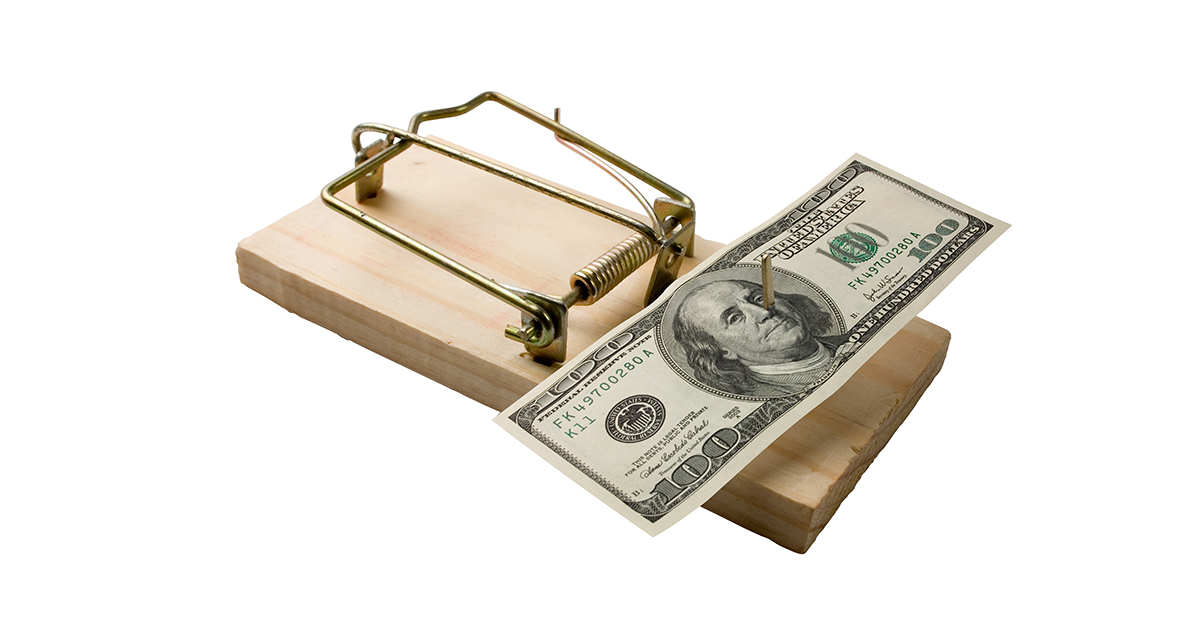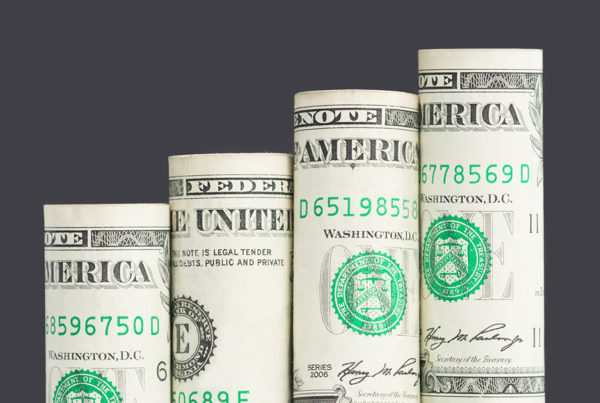There you are, just scrolling through social media mindlessly when you scroll past an ad for something you were just thinking about when an email notification slides on screen for something you don’t really need, but the subject line says it’s 40% off. Then later you’re driving down the highway only to see a photo of a delicious seasonal soup on a billboard and a photo of steaming coffee on a semi-truck trailer. Suddenly you find yourself taking the next exit for a quick pick-me-up, purchasing that thing you saw in your email while you wait in the drive-thru lane.
So how did it happen? How did you fall for the temptations?
Marketers have tapped into their psychology books to quickly move you from awareness to purchase. Learn why we get tempted and ways to prevent overspending.
Why do we get tempted to make unplanned purchases or spend more than we have?
- Our self-control muscle gets tired. According to an article provided by the Association for Psychological Science, self-regulation can get sore and tired, just like a muscle you’ve worked hard during your daily exercise routine. That means if we hold our tongues (and keep our emotions in check) when someone says something unkind, there is less of the self-control muscle available to say no to that pint of ice cream when we stop for groceries on the way home.
- We get lured in by a good deal. Buy one, get one free, 40% off or 4/$5—the deal may vary, but the effect is the same. It’s only available for a limited time (feels exclusive), so you must act now (and think it through later). In fact, nearly two-thirds of consumers have made a purchase they weren’t planning to make based solely on finding a coupon or discount.
- Fear of missing out. Impacting people of all ages, FOMO (Fear of Missing Out) can drive us to make all sorts of decisions, from travel plans to technology purchases. When you see your co-worker flashing their new tech watch during a video call, you may find yourself Googling similar gadgets for yourself (even if you weren’t in the market in the first place). S. Did you know that wanting what others have is a survival instinct?
- You want to treat yourself. You survived another meeting that could have been an email, made it through another day of virtual schooling or knocked off another difficult task on your list, so now you want to celebrate. As a child, odds are high you likely received a reward of a sticker for doing a good job. As an adult, you likely seek higher rewards, like a glass of wine after a long day, new wardrobe for landing a new job, or a {insert reward here} for {insert reason here}. When we feel deprived, we tend to try to bring things back into balance by saying we earned something. This can cause us to overspend, unless we plan for treats/rewards. By building rewards into our daily and monthly routines (such as a new pair of pants for meeting a weight loss milestone), we will value the reward more and be more likely to stay on course.
Ways to Prevent Overspending
While you could avoid whatever it is that makes you tempted (the cookie jar, local department store, etc.), that may mean you need to lock yourself away with no access to the internet (and we’d really miss you if you did that!). Instead of moving to a cave, start identifying your reasons for making those impulsive purchases: do you want to keep up with everyone else, are you using it to (try to) make yourself feel better or something else entirely? Once you identify WHY you are making decisions, you can take steps to stop yourself from falling for future temptations. The biggest takeaway: no matter how great a deal may seem, it doesn’t require your immediate decision. Take a step back, evaluate the deal and the item and determine if you really need it. Try visualizing yourself using it today, a week from now, months from now and a year from now. Is it something you’d really use, or would it start to collect dust? A little time is crucial to steer clear of temptation-based decisions.
How to get back on track
- Make a list of what’s most important to you. Prioritize your spending based on what you need and want the most. Start with the necessities like housing, food, clothing and transportation and things you have a legal agreement to pay, such as your loans or credit cards. Next, set a savings goal to build an emergency fund. Finally, make a list of things that are nice to have. While it can be tempting to do this in your head, odds are, you may miss one of your necessities and writing it down (either on paper or on the computer) can help you visualize how much you spend.
- Pay your bills first. Seems intuitive, but we have to say it. Outline when your bills are due, when your paychecks are deposited into your account and set up automatic payments accordingly.
- Develop a budget. A budget is like a map, helping guide us to our destination. But just like a map shows us how to get where we are going, it doesn’t prevent us from stopping for coffee or picking up an impulse purchase from an end-of-the-aisle display. Take time to establish a budget and then make a commitment to follow it.
- Plan for fun. Like we said above, planning for rewards can help you meet your goals. Save for a daytrip, new TV or something else that you will enjoy to help you stay motivated to keep on course and avoid temptations along the way.
Looking for more budgeting tips? Check out our monthly budget tips for more resources.






 Federally Insured by NCUA |
Federally Insured by NCUA |  Equal Housing Opportunity |
Equal Housing Opportunity |